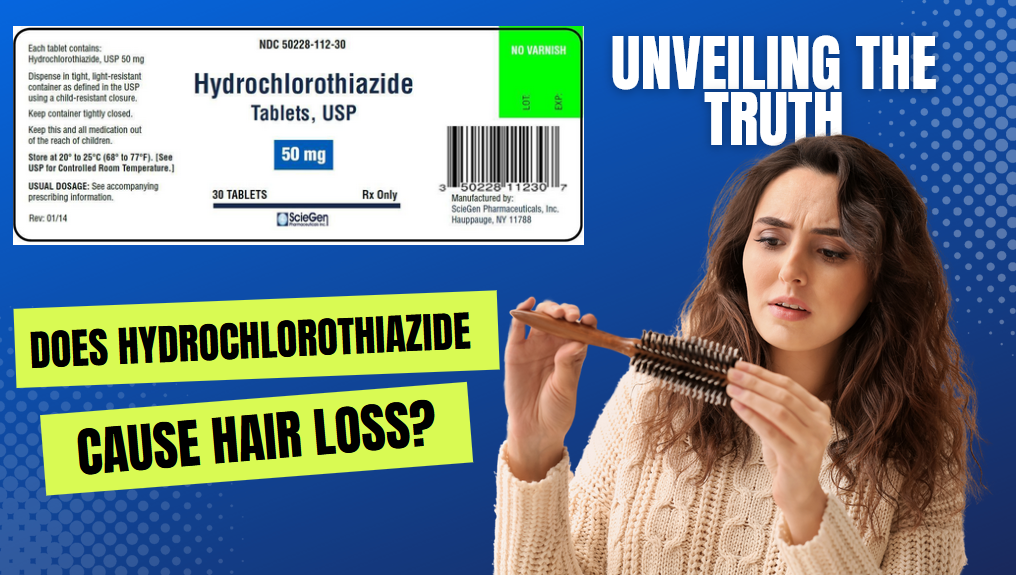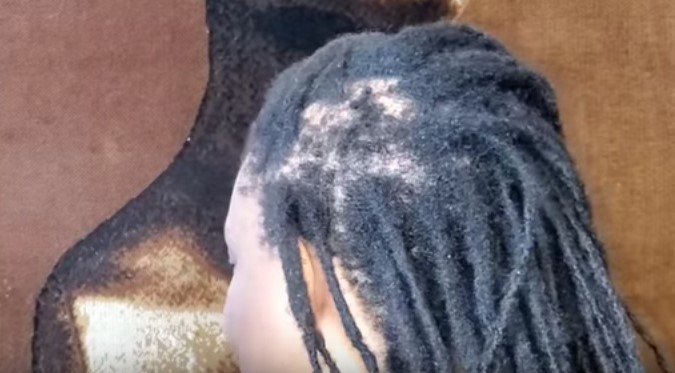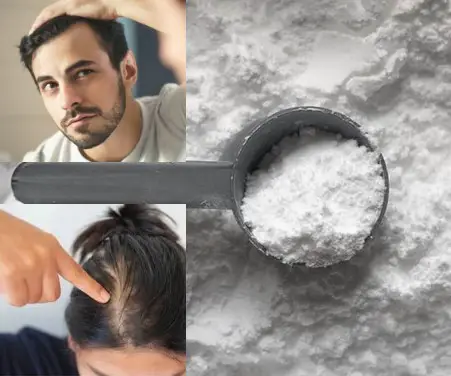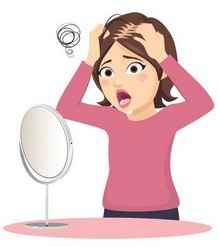Unveiling the Truth: Does Hydrochlorothiazide Cause Hair Loss? Explore facts, tips, and alternatives. Read now for informed decisions.
Hydrochlorothiazide, a commonly used diuretic, has proven instrumental in managing a variety of health conditions, most notably hypertension. While it’s praised for its efficacy in treating these conditions, it also comes with a range of side effects, some common and others quite rare.
One of the less common but often alarming side effects reported is hair loss. This article aims to shine a light on hydrochlorothiazide, summarizing its primary uses and known side effects, with a special focus on its alleged connection to hair loss. It further delves into scientific studies and evidence revolving around this specific side effect and highlights expert opinions and patient experiences associated with this drug usage.
Understanding Hydrochlorothiazide
Hydrochlorothiazide, often referred to as HCTZ, is a widely used diuretic (or “water pill”) primarily prescribed for the treatment of high blood pressure and fluid retention. Its function is to help kidneys get rid of excessive sodium and water in the body, thereby lowering blood pressure and alleviating symptoms caused by fluid build-up. Like all drugs, HCTZ has the potential for side effects. Common ones include dizziness, headache, blurred vision, and gastrointestinal upset.
Does Hydrochlorothiazide Cause Hair Loss? Potential Connection!
When discussing potential side effects of taking hydrochlorothiazide, one might wonder if the medication can lead to hair loss. According to the manufacturer’s data and the Food and Drug Administration (FDA), hair loss has not been registered as a common side effect or significant concern. Although isolated reports suggest instances of hair loss linked to hydrochlorothiazide use, these occurrences are statistically insignificant and might simply be coincidental. While it might be possible that hydrochlorothiazide can lead to hair loss, it is neither a typical nor expected reaction. Numerous factors, such as genetic predisposition, dosage, duration of medication use, and the potential presence of other health conditions or medications, might influence whether hydrochlorothiazide use triggers hair loss.
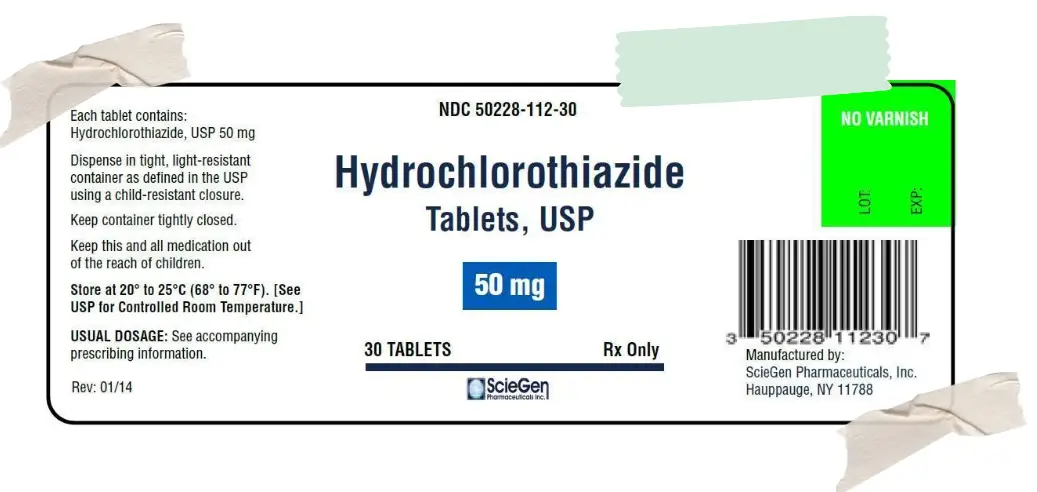
Studies and Evidence on Hair Loss due to Hydrochlorothiazide
Understanding Hydrochlorothiazide and its Potential Link to Hair Loss
Hydrochlorothiazide, a medication primarily used to treat high blood pressure and fluid retention, has occasionally been associated with reports of hair thinning or loss. However, it’s important to clarify that these results are primarily anecdotal, as there are currently no scientific studies that directly confirm hydrochlorothiazide as a cause of hair loss.
Despite the lack of scientific evidence linking hydrochlorothiazide to hair loss, it’s not completely ruled out due to the drug’s potential impact on hormonal balance, which can, in turn, instigate hair loss. Yet, upon further investigation, many patients reporting this symptom were often using other medications or had existing health conditions that could contribute to hair loss. These elements complicate efforts to directly connect hydrochlorothiazide to hair loss.
While certain medications, including some for high blood pressure, are recognized in medical literature as potential causes of hair loss, hydrochlorothiazide is not typically one of them. This information suggests that hydrochlorothiazide isn’t a likely cause of hair loss. That being said, every patient reacts differently to medication and hair loss could be an unusual side effect for a minority of hydrochlorothiazide users. Therefore, medical professionals advise patients to report any unexpected side effects, including hair loss, to aid research and increase awareness of less common medication reactions.

Expert Opinions and Patient Experiences
Medical Expert Perspectives on Hydrochlorothiazide and Hair Loss
While hydrochlorothiazide is not officially listed as a common cause of hair loss, some medical experts theorize a potential connection. Several dermatologists have noted cases of hair thinning or loss among patients using this medication. However, they also caution that high blood pressure itself may contribute to hair loss, due to restricted blood circulation to the scalp and related stress factors. Therefore, it’s challenging to definitively attribute hair loss to the use of hydrochlorothiazide without considering other potential factors.
Patient Experiences and Preventative Measures
In terms of patient experiences, some people who are prescribed hydrochlorothiazide have reported hair loss as an issue. On various health forums and medicinal review platforms, patients have shared experiences of noticeable hair thinning or shedding after starting the medication. However, there are also large numbers of patients who use this medication long-term and do not report experiencing hair loss.
If you are experiencing significant hair loss while on this medication, experts recommend a few strategies. First, don’t stop taking hydrochlorothiazide without talking to your doctor. It’s important to manage your blood pressure to maintain overall health. Instead, discuss the issue with your healthcare provider. They may suggest switching to a different medication or reducing the dosage. There are also various treatments available for medication-induced hair loss, including topical products containing minoxidil, a medication proven to help regrow hair, and low-level laser therapy, which stimulates hair follicles to improve growth. It’s important to consult with a healthcare professional before starting any new treatment regimen.
Keep in mind, eating a balanced diet, maintaining a healthy scalp, and protecting your hair from physical damage can also help to minimize hair loss. Moreover, managing stress levels, as stress can contribute to hair loss, is a crucial preventative measure.

Understanding the connection between hydrochlorothiazide and hair loss can be challenging due to the complexity of human biology and the uniqueness of each individual’s physiological reaction to medicine. However, through the analysis of relevant scientific studies, expert testimonies, and patient experiences showcased in this discourse, it’s evident that the link between hydrochlorothiazide and hair loss is not entirely clear-cut. While some individuals may experience this side effect, it’s important to realize that it is relatively rare. It is also crucial to remember that the benefits of this medication in managing serious health conditions must be weighed against potential side effects. Always consult a healthcare professional for any concerns related to medication use.
References
-
Drugs.com. Hydrochlorothiazide: Uses, Dosage, Side Effects. [Internet]. [cited 2021 Aug 11]. Available from: https://www.drugs.com/hydrochlorothiazide.html
-
Herman LL, Bashir K. Hydrochlorothiazide. In: StatPearls [Internet]. Treasure Island (FL): StatPearls Publishing; 2021. [cited 2021 Aug 11]. Available from: http://www.ncbi.nlm.nih.gov/books/NBK430766/
- https://www.aad.org/public/diseases/hair-loss/causes/18-causes
- AI Powered Bald Filter Online 2024: See Yourself with No Hair! - January 19, 2024
- Harklinikken Bad Reviews 2024: Analyzing Negative Feedbacks - January 18, 2024
- How to Get the Alex Eubank Hair | Step-By-Step Tutorial 2024 - January 18, 2024

